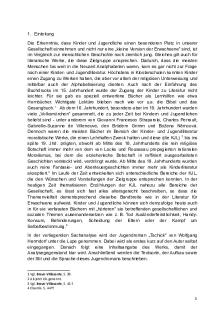Composo Assignment_diba diba diba_ ha ha ha ha_ badly PDF

| Title | Composo Assignment_diba diba diba_ ha ha ha ha_ badly |
|---|---|
| Author | Kimberly Jameson |
| Course | Introduction to Atlantic History |
| Institution | Mico University College |
| Pages | 1 |
| File Size | 34.9 KB |
| File Type | |
| Total Downloads | 29 |
| Total Views | 192 |
Summary
hello have a nice day. Thank youuuuuuu, Keep safe alwayssssssssssssssssssss...
Description
The separation of Philippine society from the United Sates was escalated during the post-Cold War period due to the withdrawal of US bases from the Philippines. The Philippines had kept its intimate relationship with United States as the former suzerain even after its independence at the end of World War II, making the United States a special country for Filipinos for quite a long time. However, since the 1990s the Philippines has developed closer ties with neighboring Asian countries, while at the same time internally there have been attempts to re-question the Americanized pattern of thinking that used to lie silently at the bottom of the structure of Filipino consciousness. Secondly, the Philippines celebrated the centennial anniversary of the Philippine Revolution in 1996-1998. The Philippine Revolution of 1896 1898 (or at the end of the 19th century) was the first independent struggle in colonial Southeast Asia. The Philippines gained its independence from Spain in 1898, but, the United States soon intervened in the Spanish-American War and bought the territory of the Philippine archipelago from Spain under the Treaty of Paris. As a result, the Philippine-American War broke out in 1899. The United States declared pacification complete in 1902, thus aborting the Revolution. In spite of the historical complexity, we might see that in the collective memory of Filipinos today, the Philippine Revolution has been remembered as the root of Philippine modern history. Taking the opportunity provided by the centennial anniversary of the Philippine Revolution, some Filipino scholars have begun to re-write Philippine history from new perspectives, reflecting the “globalized” surroundings of Philippine society in the post-Cold War period. With such background, there have arisen various attempts by Filipinos to free themselves from the American cultural influence that has restricted their patterns of thought for a long time. Generally speaking, Filipino scholars who engage in such attempts have acute historical consciousness and they have some common experiences of earning higher degrees in graduate schools of distinguished universities in the United States. They did so while carrying with them the knowledge of historiography, political science, and philosophy or intellectual history that they had previously learned from their undergraduate studies in the Philippines. To seek their own identities, they have struggled with American scholarship and continuously been exploring their own ways of integrating their historical experiences as Filipinos into their scholarship and writings.
The way the historian presents the history is influenced by Nationalist and Democratic Imperialist School in which recognizes the Americans influence that benefited the Filipinos. The Philippine Revolution has been remembered as the root of Philippine modern history and it is still being celebrated by Filipino people today. The outbreaks of the Philippine revolution and the Filipino-American war strengthened the nationalistic feelings of the Filipinos to win their freedom from the colonial bondage. In addition, some Filipino scholars have begun to re-write Philippine history from new perspectives, reflecting the “globalized” surroundings of Philippine society. The historian tells about the experiences of Filipinos in the times when the nation is in the hands of Americans. There are many Filipino scholars nowadays who engage in such attempts have acute historical consciousness and they have some common experiences of earning higher degrees in graduate schools of distinguished universities in the United States. One influence of American colonization given is to educate, civilize, and train the Filipino in the art of democratic government....
Similar Free PDFs

HA - Kaplan
- 60 Pages

HA Tschick
- 9 Pages

HA EXAM\' 1
- 55 Pages

Formuleblad-ha - formules
- 1 Pages

Il treno ha fischiato
- 2 Pages

GSV HA - Test
- 28 Pages

Aristoteles tugend ha keller
- 17 Pages

HA 3 - Hausaufgabe
- 5 Pages

Preposizioni B e HA
- 1 Pages

IL Treno HA Fischiato - Appunti
- 2 Pages

HA 6100 Syllabus FA\'21
- 9 Pages

Ha Thu Uyen 1945515727 docx
- 14 Pages
Popular Institutions
- Tinajero National High School - Annex
- Politeknik Caltex Riau
- Yokohama City University
- SGT University
- University of Al-Qadisiyah
- Divine Word College of Vigan
- Techniek College Rotterdam
- Universidade de Santiago
- Universiti Teknologi MARA Cawangan Johor Kampus Pasir Gudang
- Poltekkes Kemenkes Yogyakarta
- Baguio City National High School
- Colegio san marcos
- preparatoria uno
- Centro de Bachillerato Tecnológico Industrial y de Servicios No. 107
- Dalian Maritime University
- Quang Trung Secondary School
- Colegio Tecnológico en Informática
- Corporación Regional de Educación Superior
- Grupo CEDVA
- Dar Al Uloom University
- Centro de Estudios Preuniversitarios de la Universidad Nacional de Ingeniería
- 上智大学
- Aakash International School, Nuna Majara
- San Felipe Neri Catholic School
- Kang Chiao International School - New Taipei City
- Misamis Occidental National High School
- Institución Educativa Escuela Normal Juan Ladrilleros
- Kolehiyo ng Pantukan
- Batanes State College
- Instituto Continental
- Sekolah Menengah Kejuruan Kesehatan Kaltara (Tarakan)
- Colegio de La Inmaculada Concepcion - Cebu



